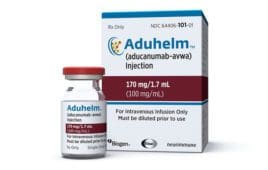
The siren call of addictive drugs can be hard to resist, and returning to the environment where drugs were previously taken can make resistance that much harder. However, addicts who exercise appear to be less vulnerable to the impact of these environmental cues. Now, research with mice suggests that exercise might strengthen a drug user’s resolve by altering the production of peptides in the brain, according to a study in the journal ACS Omega.
Re-exposure to drug-related cues, such as the location where drugs were taken, the people with whom they were taken or drug paraphernalia, can cause even recovered drug abusers to relapse. Prior studies have shown that exercise can reduce craving and relapse in addicts, as well as mice. Although the mechanism was unknown, exercise was thought to alter the learned association between drug-related cues and the rewarding sensations of taking a drug, possibly by changing the levels of peptides in the brain. Jonathan Sweedler, Justin Rhodes and colleagues at University of Illinois at Urbana-Champaign decided to explore this theory by quantifying these peptide changes in mice.
Mice were given cocaine injections over four days in special chambers with a distinctive floor texture to produce a drug association with that environment. The animals were then housed for 30 days in cages, some of which included a running wheel. The researchers found that mice that exercised on these wheels had lower levels of brain peptides related to myelin, a substance that is thought to help fix memories in place. Re-exposure to the cocaine-associated environment affected running and sedentary mice differently: Compared with sedentary mice, the animals with running wheels showed a reduced preference for the cocaine-associated environment. In addition, the brains of re-exposed runners contained higher levels of hemoglobin-derived peptides, some of which are involved in cell signaling in the brain. Meanwhile, peptides derived from actin decreased in the brains of re-exposed sedentary mice. Actin is involved in learning and memory and is implicated in drug seeking. The researchers say these findings related to peptide changes will help to identify biomarkers for drug dependence and relapse.
Filed Under: Neurological Disease




